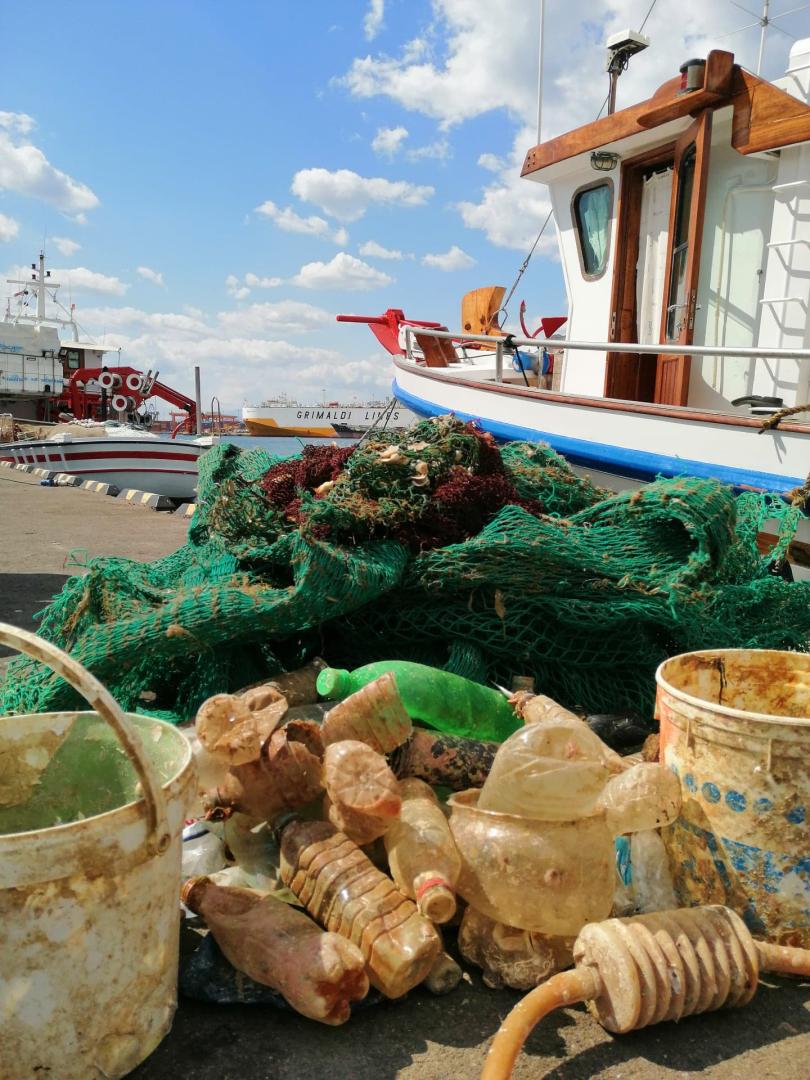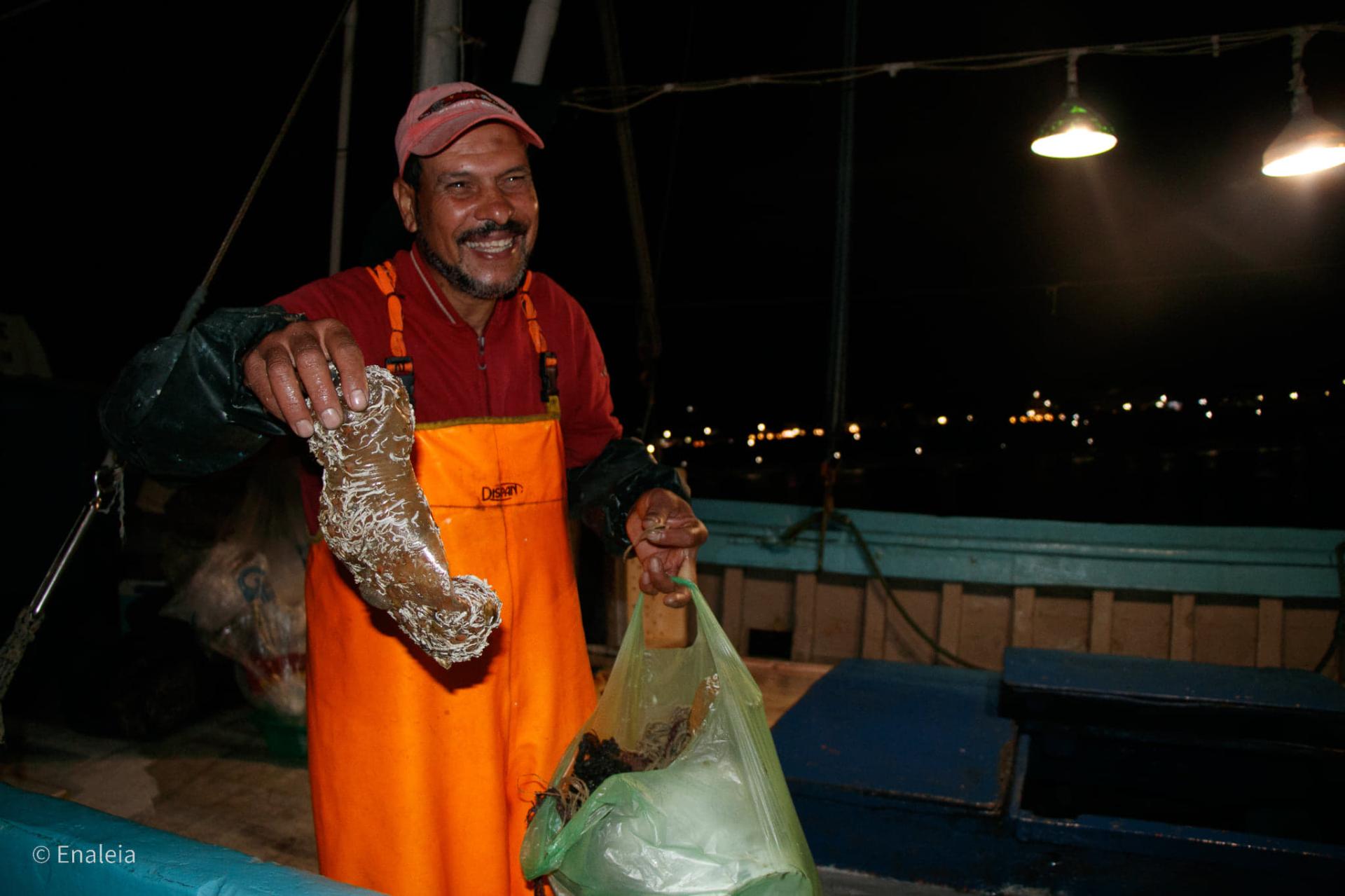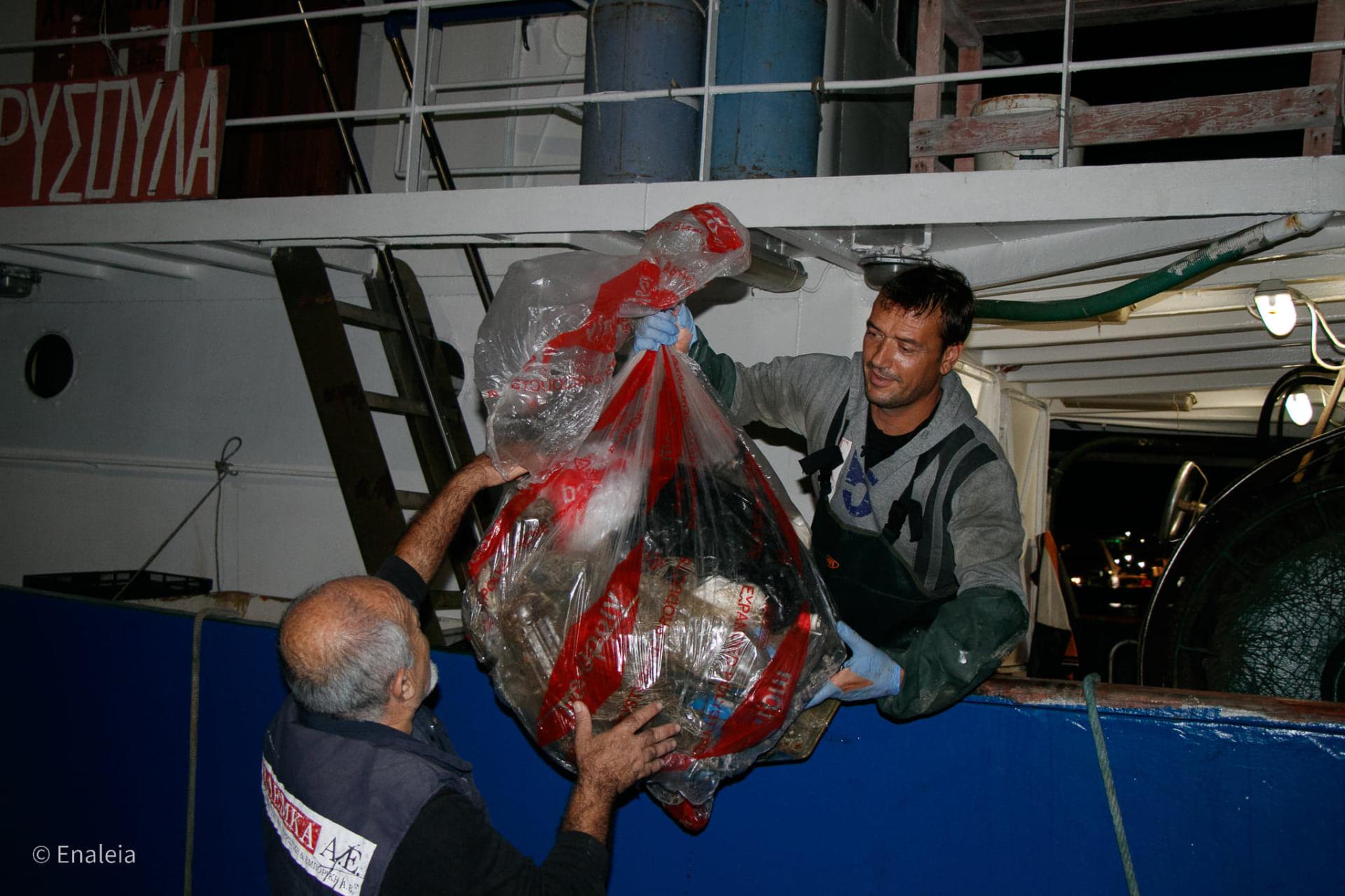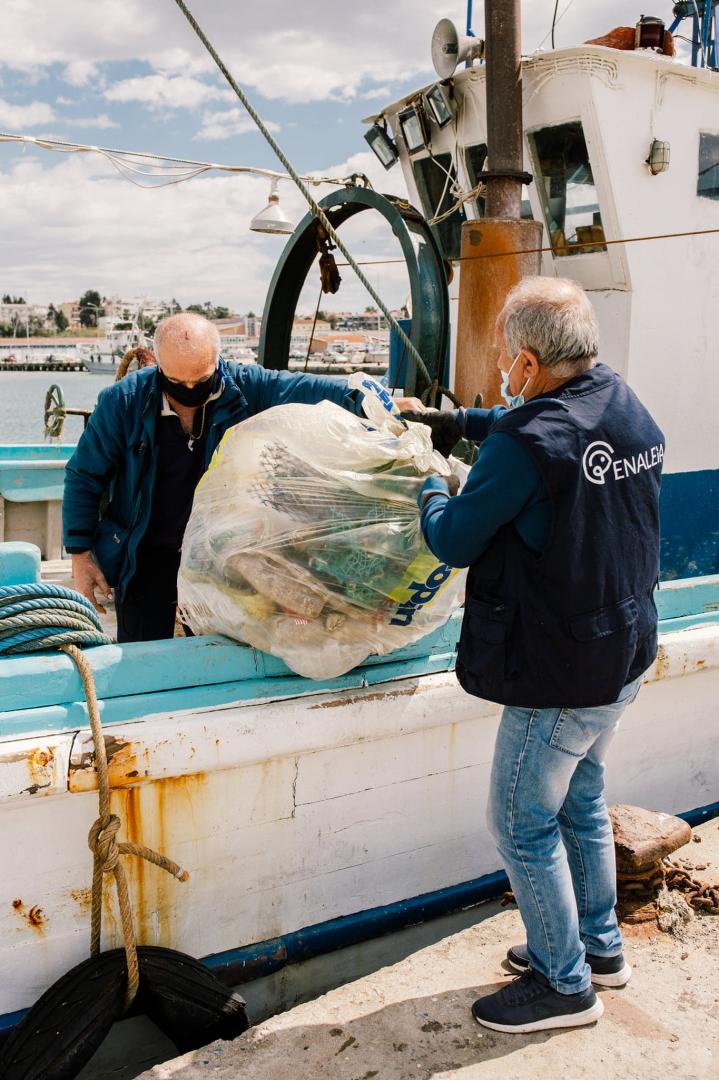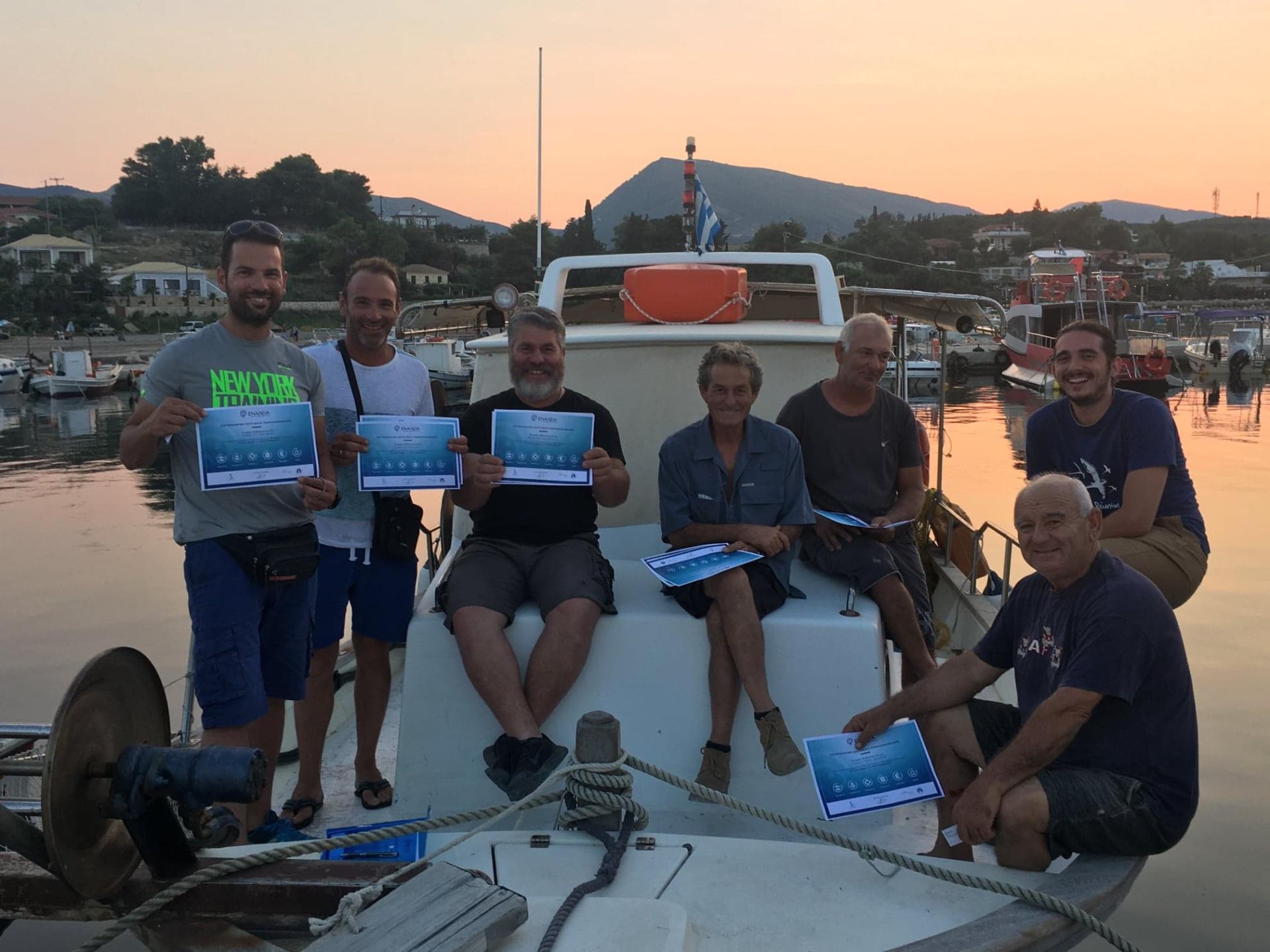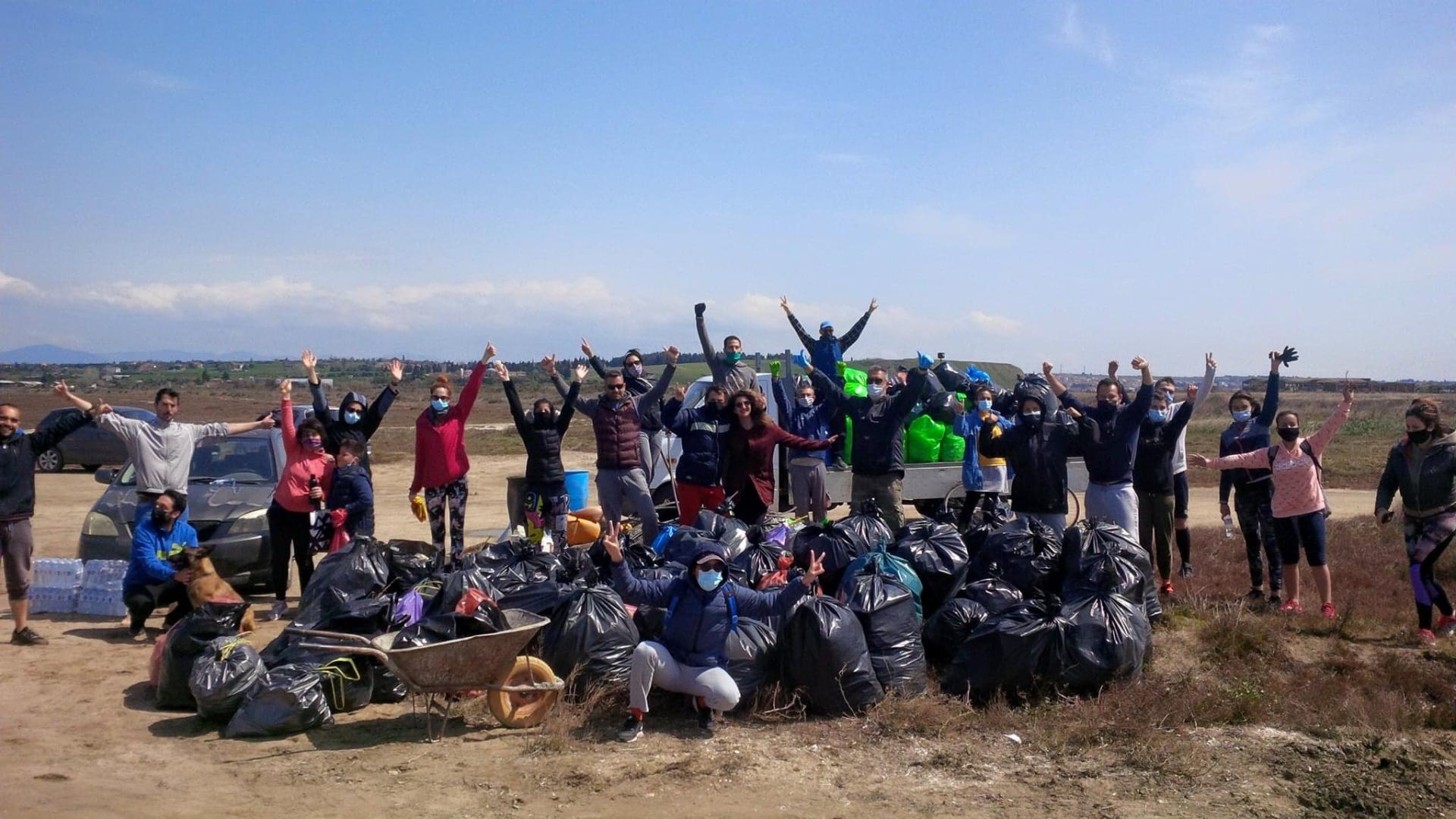Enaleia
Basic information
Project Title
Full project title
Category
Project Description
Enaleia is the first Greek fishing school that aspires to provide fishers with education about contemporary climate issues and teach them sustainable fishing techniques, empowering them to fight marine plastic pollution and overfishing.
Project Region
EU Programme or fund
Which funds
Other Funds
Catching the Potential: Project started in January 2020 (still in progress). Participation in a cooperation programme together with academies and fisheries organisations from 7 European countries, to create a single course focusing on sustainable fisheries.
Project funded by CLIMATE-KIC
Description of the project
Summary
Enaleia provides local fishing communities with an education in order to make them able to participate in the global climate action, joining its main actions. Firstly, we train fishers to participate in the “Mediterranean CleanUp” project, making them to collect plastic from the bottom of the sea and to bring it to us to integrate it into the circular economy, but also to prevent their used plastic equipment to end up in the sea promoting it as well to the circular economy. Also, we provide training to fishermen to join our “Fish Smarter” project, teaching them how they can avoid overfishing, increasing their income, utilizing modern models like sustainable fishing tourism. What we do is to conduct tailor-made workshops customed to the particular needs of these communities, the majority of which are people with low educational level, making them understand and realize the socio-environmental benefits from their participation in our actions. Until today we have collaborated with more than 1.000 fishers in Greece and Italy with success
Key objectives for sustainability
Our key objectives are aligned with the below SDGs:
#4 Quality Education: We provide people with low-level academic backgrounds with knowledge and skills for participating in climate action.
#8 Decent work and Economic Growth: Local fishers, who are by definition low-wage workers, apart from the fact that they contribute to the long-term viability of their jobs, they have the opportunity to increase their income with a symbolic reward that we provide them with for their efforts.
#13 Climate action: All of our projects are related to climate action for reaching the set global goals, focusing on the small-scale fishing industry.
#14 Life below water: Until today, we have collected more than 150.000 Kg of marine plastic from the bottom of the sea, protecting the marine ecosystem.
#17 Partnerships for the goals: In every area of our intervention, one of our top priorities is to collaborate with local public, private and civil society organizations engaging all the relevant stakeholders in our holistic solutions.
Key objectives for aesthetics and quality
One of the critical elements for implementing successfully educational projects to social groups that are not familiar with the topic but also with the process is to get adapted to their needs offering the best possible experience. In other words, in order to make our projects to be impactful for the local fishing communities, we had to adapt the education concerning sustainable fishing in a way to be understandable and manageable for them, but also, we had to adjust our educational process as well. Specifically, in most cases, our training is on the field, meaning the ports, or even on the boats during their activities. In this way, fishermen feel more comfortable absorbing the new ideas we introduce to them more easily while we have the opportunity to show them what we mean in theory. Consequently, we always try to increase the quality of the experience we offer, improving our functionality and achieving wider social and environmental impact.
Key objectives for inclusion
Our projects by definitions are addressed to people that are excluded from many social schemes. Specifically, fishermen's job is a job with low social status, while the vast majority of fishermen are low-wage migrants. With our intervention, we provide to those people qualitative education as well as increase their incomes. However, the most significant contribution of our projects is that we give the opportunity and the tools to those people to be part of the climate action nexus joining our mission and vision for clean and protected seas. In other words, we allow them to defend and act for their own jobs, but most importantly, for the marine ecosystem and the life under the sea. Until recently, fishermen were regarded as part of the problem; however, we have achieved to alter this concept by targeting to social inclusion and making these social groups a significant part of the solution.
Results in relation to category
From the beginning of Enaleia, we have achieved the below goals:
- We have taught more than 150 unemployed fishers connecting them directly with the job market through our fishing school.
- Through the “Mediterranean CleanUp” project, we have trained more than 1.000 fishers to collect plastic from the bottom of the sea, having collected more than 150.000Kg marine plastic so far.
- Through the “Fish Smarter” project, we have trained more than 100 fishers on exploiting sustainable fishing tourism to increase their incomes without overfishing.
The above features are the easily measurable critical achievements of our action; however, the additional positive externalities of our projects are even broader since, through our projects, we improve directly the quality of life of 4 million people living in the coastlines where we operate, as well as we protect the local marine ecosystems mitigating the plastic that enters the food chain.
How Citizens benefit
The citizens are affected by our projects both directly and indirectly. On the one hand, social groups directly receive education from us and they are able to increase their income by participating in our projects for the mitigation of marine plastic pollution and overfishing. These are primarily local fishing communities. On the other hand, there are many citizens, especially those who are live near the coastlines where we operate, who are benefited indirectly from our projects since they can enjoy an improved quality of life in the area, potential economic growth from tourism and avoidance to consume microplastics through eating local fishes. The role of civil society in our project is vital. Actually, we are members of this society, being a Non-Profit and Non-Governmental Organization. However, we always strive to include in our action as many civil organizations as possible. For this reason, we build partnerships with local groups of citizens and other social organizations, we prefer to get funded by Charitable Foundations that are climate action-driven and we are connected with academic organizations for exploiting all of the created knowledge in favour of science. In this way, we are able to accelerate the impact of our actions, but also, we are able to increase our social intervention significantly.
Innovative character
What makes our work different compared to other similar projects is the concept that we have captured. Specifically, we utilize existing economic activities with existing established networks to clean the bottom of the sea and mitigate overfishing. Consequently, without creating any further negative externality from our actions, we have achieved to optimize the positive externalities from the fishing activities without using additional resources or increasing the process's carbon footprint. Another element that makes our work unique is the education we provide to fishers since it is required a profound change in their mentality. Thus, our solution's innovation is not placed in any technological hub or any experimental lab, but it is hidden in real life and what we do is to reveal it and put it into practice.

